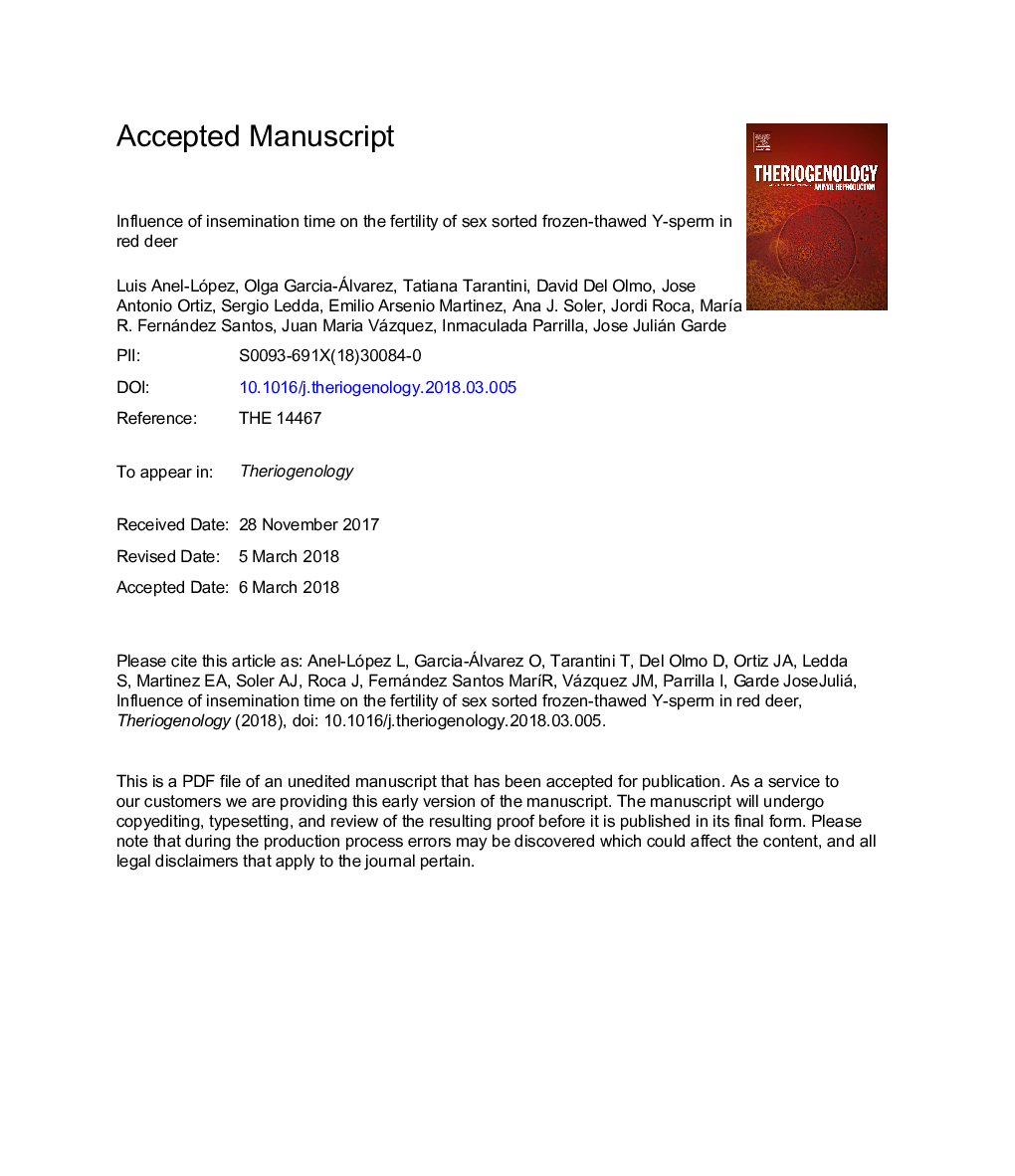| Article ID | Journal | Published Year | Pages | File Type |
|---|---|---|---|---|
| 8427070 | Theriogenology | 2018 | 18 Pages |
Abstract
The aim of this study was to assess the effect of insemination timing on pregnancy rates in red deer (Cervus elaphus) when using sex-sorted sperm samples. Semen was collected by electroejaculation from 8 mature stags and processed to obtain: Conventional samples, following standard freezing procedures for commercial purposes; Control sorted samples, diluted and handled as per sorted samples but without being submitted to the sorter passage; and Y Sex Sorted (YSS) samples. Hinds were synchronized via intravaginal CIDR (Controlled Internal Drug Release) placement and given eCG (Folligon® PMSG Serum Gonadotrophin) on day 12, upon CIDR removal. They were then inseminated with one of each sperm treatment, at the following post-eCG intervals: I_1, 55:01-55:30â¯h; I_2, 55:31-56:00â¯h; I_3, 56:01-56:30â¯h; or, I_4, 56:31-57:00â¯h. Pregnancy rates were assessed at parturition. Average pregnancy rates were highest (Pâ¯<â¯0.05) for Conventional samples (77.6%), but similar between YSS (49.8%) and Control sorted (51.3%) samples. However, when insemination interval was taken into account, pregnancy rates within the YSS group, pregnancy rates were 80 and 83.1% for I_1 and I_2, respectively were obtained. Notably, these rates were similar (Pâ¯>â¯0.05) to the average pregnancy rates obtained with Conventional samples (77.6%). As expected, YSS sperm yielded 94% male offspring contrasting with the 57% males obtained with Conventional and Control sorted samples. Our findings support the importance of developing specific insemination timing protocols to improve pregnancy rates when using frozen-thawed sex-sorted sperm. These findings provide the foundation for further investigations in order to determine why the YSS sperm are able to fertilize the oocyte in a shorter period of time than the conventional samples.
Related Topics
Life Sciences
Agricultural and Biological Sciences
Animal Science and Zoology
Authors
Luis Anel-López, Olga Garcia-Álvarez, Tatiana Tarantini, David Del Olmo, Jose Antonio Ortiz, Sergio Ledda, Emilio Arsenio Martinez, Ana J. Soler, Jordi Roca, MarÃa R. Fernández Santos, Juan Maria Vázquez, Inmaculada Parrilla, Jose Julián Garde,
